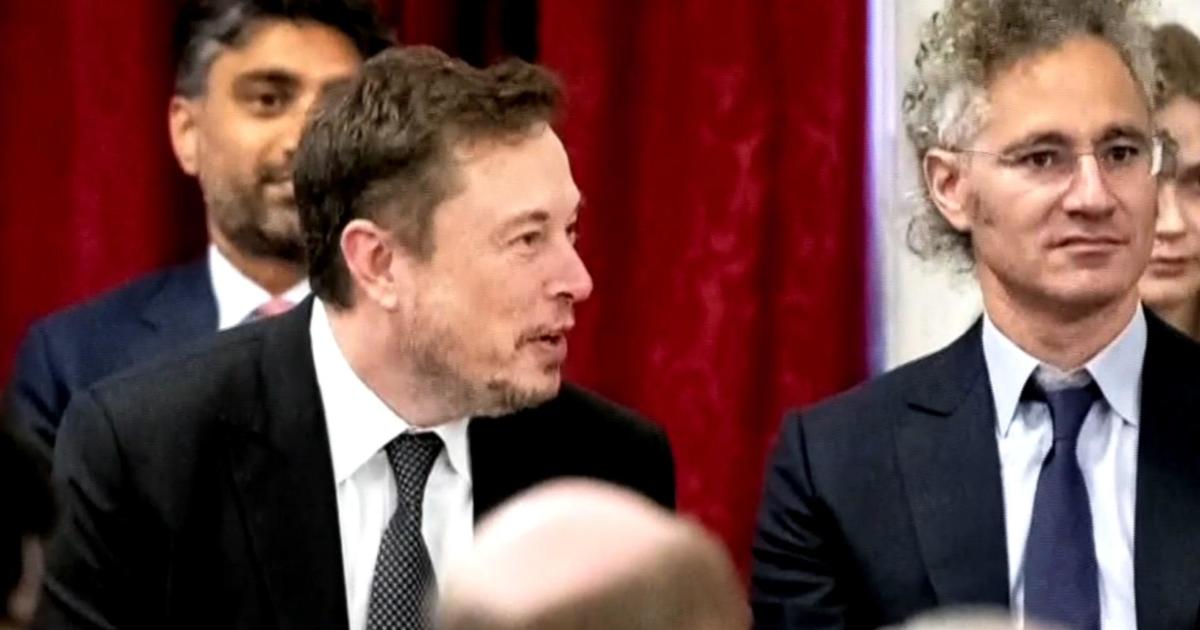- Capitol Hill is not known for being tech-savvy, but during a recent Senate hearing on AI regulation, legislators showed surprising knowledge and understanding of the topic.
- Senator Richard Blumenthal asked about setting safety breaks on AutoGPT, an AI agent that can carry out complex tasks, to ensure its responsible use.
- Senator Josh Hawley raised concerns about the working conditions of Kenyan workers involved in building safety filters for OpenAI's models.
- The hearing featured testimonies from Dario Amodei, CEO of Anthropic, Stuart Russell, a computer science professor, and Yoshua Bengio, a professor at Université de Montréal.
- This indicates a growing awareness and interest among lawmakers in understanding and regulating AI technology.
U.S. Senate Majority Leader Chuck Schumer will host a closed-door artificial intelligence forum on September 13, featuring tech leaders such as Elon Musk, Mark Zuckerberg, and Sundar Pichai, to lay down a new foundation for AI policy.
X Corp. Chairman Elon Musk and Meta Platforms CEO Mark Zuckerberg have been invited to brief U.S. senators on artificial intelligence at a future forum organized by Senate Majority Leader Chuck Schumer, alongside other speakers including OpenAI CEO Sam Altman and Google CEO Sundar Pichai.
Elon Musk is deeply concerned about the dangers of artificial intelligence and is taking steps to ensure its safety, including founding OpenAI and starting his own AI company, xAI.
AI is being discussed by CEOs behind closed doors as a solution to various challenges, including cybersecurity, shopping efficiency, and video conferencing.
Congress is holding its first-ever meeting on artificial intelligence, with prominent tech leaders like Elon Musk, Mark Zuckerberg, and Bill Gates attending to discuss regulation of the fast-moving technology and its potential risks and benefits.
Eight big tech companies, including Adobe, IBM, Salesforce, and Nvidia, have pledged to conduct more testing and research on the risks of artificial intelligence (AI) in a meeting with White House officials, signaling a "bridge" to future government action on the issue. These voluntary commitments come amidst congressional scrutiny and ongoing efforts by the White House to develop policies for AI.
Senators Richard Blumenthal and Josh Hawley are holding a hearing to discuss legislation on regulating artificial intelligence (AI), with a focus on protecting against potential dangers posed by AI and improving transparency and public trust in AI companies. The bipartisan legislation framework includes creating an independent oversight body, clarifying legal liability for AI harms, and requiring companies to disclose when users are interacting with AI models or systems. The hearing comes ahead of a major AI Insight Forum, where top tech executives will provide insights to all 100 senators.
Tech CEOs Elon Musk and Mark Zuckerberg will be participating in Sen. Majority Leader Chuck Schumer's first AI Insight Forum, where lawmakers will have the opportunity to hear from them about artificial intelligence.
Tech industry leaders, including Elon Musk, Mark Zuckerberg, and Sundar Pichai, are set to meet with lawmakers in Washington to discuss artificial intelligence and its implications, aiming to shape regulations and influence the direction of AI development.
The CEOs of several influential tech companies, including Google, IBM, Microsoft, and OpenAI, will meet with federal lawmakers as the US Senate prepares to draft legislation regulating the AI industry, reflecting policymakers' growing awareness of the potential disruptions and risks associated with AI technology.
Tesla CEO Elon Musk called for the creation of a federal department of AI, expressing concerns over the potential harm of unchecked artificial intelligence during a Capitol Hill summit.
Elon Musk and Mark Zuckerberg were seated far apart at a closed-door Senate meeting on AI, with Musk describing the discussion as a "very civilized" one.
Tech industry leaders gather for AI talks.
Israeli Prime Minister Benjamin Netanyahu is set to meet with tech entrepreneur Elon Musk in California to discuss artificial intelligence technology, amidst allegations that Musk's social media platform X has amplified anti-Jewish hatred.
Recent Capitol Hill activity, including proposed legislation and AI hearings, provides corporate leaders with greater clarity on the federal regulation of artificial intelligence, offering insight into potential licensing requirements, oversight, accountability, transparency, and consumer protections.
Israeli Prime Minister Benjamin Netanyahu and Tesla CEO Elon Musk discussed artificial intelligence (AI) and its potential threats during a live talk on the X platform, with Musk calling AI "potentially the greatest civilizational threat" and expressing concern over who would be in charge, while Netanyahu highlighted the need to prevent the amplification of hatred and mentioned the potential end of scarcity and democracy due to AI. The two also discussed antisemitism and the role of AI in fighting hatred.
A closed-door meeting between US senators and tech industry leaders on AI regulation has sparked debate over the role of corporate leaders in policymaking.
Tech leaders, including Elon Musk, joined senators to discuss AI regulation, with Musk suggesting that Twitter users may have to pay a monthly fee to combat bots on the platform.
Elon Musk believes that Neuralink's brain implants could help protect humanity from the risks of artificial intelligence by improving human-computer interaction and communication.
Scholars from various disciplines gathered at a symposium to discuss the future of artificial intelligence, including its potential benefits and ethical concerns, such as privacy and job security.
